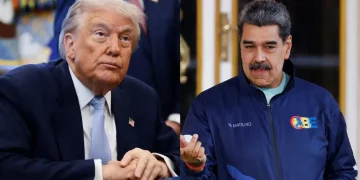It’s not about duty. We don’t have manpower and resources to protect witnesses. You can’t ask us to climb up the tree and then manage traffic on ground as well. It’s one thing to give orders, another to execute them
YB Khurania – Twin city Police Commissioner
Sagar
Post News Network
Bhubaneswar: Harishankar Purohit, a key-witness to the murder of Jharpada jail warder Manas Ranjan Naik in 2009, faxed Laxmisagar police station from Bolangir in November requesting that arrangements be made for him to depose through video conferencing.
“I feel my life will be in danger if I go to Bhubaneswar to give evidence. I have also given a statement regarding the threat to my life from Bikram Mallick November 4, 2009, but I was not given any protection,” Purohit wrote.
Mallick, who was lodged in Jharpada jail, allegedly masterminded the murder of Naik who was shot by two criminals on the jail premises November 1, 2009.
The court denied permission for video conferencing of the deposition but asked the police to provide protection to Purohit. “The state of Orissa is directed to bring the witness by providing full security to him and his family members,” the additional sessions court ordered December 16, 2015.
Naik’s murder case is among several thousands of heinous crime cases being tried in courts of the state where witnesses were threatened and won over by the accused. However, Commissionerate police have failed to protect witnesses and thus help courts in dispensing justice.
While there is no exclusive legislation on witness protection in India like there is in the US and in Europe, the Supreme Court and lower courts have observed time and again that witnesses should be protected. Central Industrial Security Force personnel were appointed by the Supreme Court to protect witnesses during the trial concerning the Gujarat riots of 2002.
“Witnesses are the eyes and ears of the justice system. It is the duty of the court and state to ensure that criminal proceedings do not become mere mock trials,” the Supreme Court observed in the Sister Meena Lalita Borwa vs State of Orissa case of 2010.
“The state has a definite role to play in protecting witnesses, at least in sensitive cases,” the apex court said in the Zahira Sheikh vs State of Gujarat case.
“It’s not about duty. We don’t have manpower and resources to protect witnesses. You can’t ask us to climb up the tree and then manage traffic on ground as well. It’s one thing to give orders, another to execute them,” said Twin city police commissioner YB Khurania.
In Orissa, the public prosecutors Pradeep Mohanty and Chinmay Mohanty in the Naik case resigned in June 2015 while telling the court that the other “witnesses in the case have been gained over by
the accused”.
Chinmay Mohanty, who is still on the case as the government rejected his resignation, expressed frustration over seven years of their hard work resulting in nothing because of the utter indifference and callousness of the city police.
“I would often get calls from witnesses that they had received threats and need protection. I would call up the police to escort witnesses from their home or bring them a day before the hearing date, but the police would only make empty promises,” he said. “I was ready to keep witnesses at my home, but the police did not help escort them from their homes to my home,” he said.







































